
Please click on participant name to read more. Click here to download a print version.
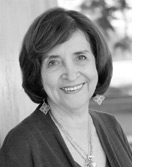 Director of the Educators Network for the Temporal Dynamics of Learning Center Director,
Director of the Educators Network for the Temporal Dynamics of Learning Center Director,
University of California, San Diego
Email:
dalvarez@ucsd.edu
Doris Alvarez is the founding Principal of The Preuss School on the University of California San Diego campus, a successful charter schools for disadvantaged students. She served in that role for 10 years. Prior to coming to The Preuss School, Dr. Alvarez was the Principal of Hoover High School for over a decade where she spearheaded a number of innovative educational practices. As a result of her work at Hoover High, Dr. Alvarez was named National Principal of the Year in 1997, California Principal of the Year in 1996 and a Milken Educator in 1995.
Dr. Alvarez’ research interest in the science of learning led to a Preuss School partnership with the Temporal Dynamics of Learning Center where teachers and students participated in Center activities. Since 2009 following her retirement, Dr. Alvarez has headed The Educator Network in the Temporal Dynamics of Learning Center. A Distinguished Educator Advisory Panel from this group met with scientists monthly leading to a variety of teacher/scientists’ research projects as well as future planning to create a model of translation from research to practice.
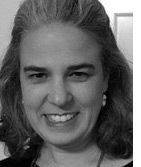 Assistant Director for Policy and Partnerships
Assistant Director for Policy and Partnerships
The Aspen Institute/National Commission on Social, Emotional, and Academic Development
Website
Email: jennifer.lerner@aspeninstitute.org
Jennifer Brown Lerner manages the policy efforts of the National Commission on Social, Emotional, and Academic Development. She is also responsible for developing partnerships on behalf of the Commission’s efforts.
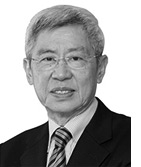 Emeritus Professor, Division of Policy, Administration and Social Sciences Education,
The University of Hong Kong
Emeritus Professor, Division of Policy, Administration and Social Sciences Education,
The University of Hong Kong
Director, Education Policy Unit, Faculty of Education
Email: kmcheng@hku.hk
Kai-ming Cheng is Emeritus Professor at the University of Hong Kong. He was Dean of Education, Pro-Vice-Chancellor (Vice-President) and Senior Advisor to the Vice-Chancellor of the University. He is Honorary Professor in Peking University, Beijing Normal University, East China Normal University, and a few others. He taught at the Harvard Graduate School of Education as Visiting Professor 1996-2007. He is now Director of Education Policy Unit at the Faculty of Education. Trained as a mathematician, he was a school teacher and a principal before he pursued doctoral study at the London Institute of Education. He has been involved in institutional evaluation and accreditation, policy discussion and training in higher education in China and various jurisdictions. He lectures at the National Academy of Education Administration, China, and SKOLKOVO, Russia. His current attention is on the fundamental changes in society and their challenges to education, and the attention to learning as the core business of education. He has been consultant with the World Bank, UNESCO, UNICEF, UNDP and the Asian Development Bank. Locally he was member of the Education Commission and was instrumental in the on-going comprehensive reform which started 1999. He is on several global advisory committees, including the Yidan Price and the National Center for Education and the Economy (US).
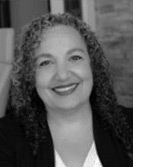 Science Director and Co-Director, Temporal Dynamics of Learning Center (TDLC)
Science Director and Co-Director, Temporal Dynamics of Learning Center (TDLC)
Professor, Department of Cognitive Science and Program in Neuroscience, UC San Diego - http://tdlc.ucsd.edu/
Email: achiba@ucsd.edu
Dr. Andrea Chiba is a Professor in the Department of Cognitive Science and in the Program for Neuroscience at the University of California, San Diego. She is Co-Director and the founding Science Director of the Temporal Dynamics of Learning Center, an NSF Science of Learning Center. The Center research is focused on the importance of time and timing in various aspects of learning, from the level of the synapse to social interactions. The goabcd imagesal of the Center is not only to understand learning, but also to translate this understanding to the practice of educating. Chiba is involved in many Center projects that allow cross-species comparisons of learning and memory, bridging from rodent to human. The Chiba Laboratory is focused on gaining an understanding of the neural systems and principles underlying aspects of learning, memory, affect, and attention, with an emphasis on neural plasticity. Her team’s current work on the neural basis of prosociality and interoception was launched through an NSF BRAIN Initiative Award. Work in her laboratory is highly interdisciplinary, using a variety of neurobiological, neurochemical, neurophysiology, computational, robotic, and behavioral techniques.
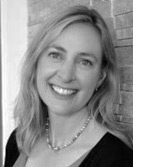 Minerva Schools at KGI; Professor of Social Sciences, UC San Diego; Associate Director for the Research on Autism and Development Laboratory, Director of the Power of NeuroGaming (PoNG) Center
Minerva Schools at KGI; Professor of Social Sciences, UC San Diego; Associate Director for the Research on Autism and Development Laboratory, Director of the Power of NeuroGaming (PoNG) Center
Website
Email: lchukoskie@ucsd.edu
Dr. Leanne Chukoskie is the Associate Director for the Research on Autism and Development Laboratory, the Co-Director of Scientific Programs for the Temporal Dynamics of Learning Center, Director of the Power of NeuroGaming Center at the University of California, San Diego, and a Professor of Social Sciences at Minerva Schools @ KGI. Her research scientist appointment in the Institute for Neural Computation and Qualcomm Institute at UC San Diego allows her to engage in interdisciplinary research with clinicians, engineers, and educators. Her current research focuses on sensory-motor behavior, especially eye movement behavior, and its neural correlates across both typical and atypical development. This focus has evolved from early studies of basic visual and eye movement processes combined with an interest and experience working with individuals on the autism spectrum. She seeks new ways to analyze data that might be used to assess outcomes of interventions. Together with her close collaborator, Jeanne Townsend, Ph.D. (Neurosciences, UCSD) she has designed and delivered a suite of gaze-contingent training games to improve spatial re-orientation of attention and gaze control of teens on the autism spectrum.
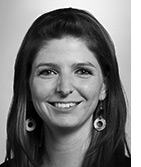 Programme manager, Education and Neuroscience, Wellcome
Programme manager, Education and Neuroscience, Wellcome
Email: l.commissar@wellcome.ac.uk
Lia Commissar works at Wellcome, where she has been leading the innovative ‘Education and Neuroscience Initiative’. The aims are to build the evidence base by funding large scale classroom-based research (educational interventions informed by neuroscience), support teachers to utilise existing relevant research findings to improve their practice and engage with policy makers to ensure their decision are evidence informed.
In September 2016, Lia ran the International Mind, Brain and Education Society’s pre-conference and was then elected to the Board of Directors in 2017. This year she organised the European Association for Research in Learning Instruction’s meeting on ‘Neuroscience and Education’ which attracted attendees from across the globe.
 Research Scientist, Institute for Learning and Brain Sciences,
Research Scientist, Institute for Learning and Brain Sciences,
University of Washington
Website
Email: dario1@u.washington.edu
Dr. Cvencek is a Research Scientist working with Dr. Andrew Meltzoff. Before coming to the Institute, he earned a Ph.D. in cognitive psychology at the University of Washington, working with Tony Greenwald. Dr. Cvencek’s research focuses on the developmental origins of social cognition and its links to education. Dr. Cvencek investigates the role of social learning in the development of children’s gender stereotypes about math, in-group attitudes, and self-esteem using implicit and explicit measures. He also considers how this social-cognitive development in children may be facilitated by a tendency of the human mind to keep one's cognitions consistent with one another.
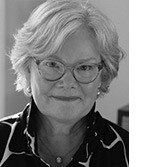 President and CEO, New Technology Network LLC
President and CEO, New Technology Network LLC
Email: ldobyns@newtechnetwork.org
Lydia Dobyns is the President and CEO of New Tech Network, a leading design partner for comprehensive school change. During her career, she has been a technology entrepreneur and executive and also worked in education policy and in the nonprofit sector. Dobyns and CEO of Getting Smart, Tom Vander Ark, are co-authors of Better Together: How to Leverage School Networks For Smarter Personalized and Project Based Learning.
Lydia's entrepreneurial and executive career features work in the high tech, online services, consumer products and health care industries. She graduated with a B.A. in English from the University of California, Berkeley. Lydia welcomes the opportunity to share lessons learned in school and district innovation and speaks at national gatherings like SXSW EDU, CoSN, Personalized Learning, NASBE, iNACOL.
 Senior Director, American Institutes for Research
Senior Director, American Institutes for Research
Website
Dean Gerdeman, Ph.D., is a senior director at the American Institutes for Research. Gerdeman leads research activities in education improvement and innovation, with an emphasis in educator professional learning. He also supports researcher-practitioner partnerships and consults in use of data and evidence in education organizations. Previously, Gerdeman was a project officer for the Institute of Education Sciences in the U.S. Department of Education and an American Association for the Advancement of Science policy fellow at the National Science Foundation. He earned his doctorate in education and master’s degrees in biology and education from UCLA.
 Chair, Child Psychiatry at Rady Children's Hospital-San Diego; Johns Hopkins Bloomberg School of Public Health Chair;
Chair, Child Psychiatry at Rady Children's Hospital-San Diego; Johns Hopkins Bloomberg School of Public Health Chair;
Director of Child and Adolescent Psychiatry; Professor of Psychiatry; University of California, San Deigo
Professor in the Department of Population, Family and Reproductive Health
Website
Email: jgiedd@ucsd.edu
Dr. Jay N. Giedd, M.D., conducts research on the biological basis of cognition, emotion, and behavior with a particular emphasis on the teen years. He explores the path, mechanisms, and influences on brain development in health and illness through longitudinal studies combining brain imaging, genetics, and psychological/behavioral assessments.
 Staff Research Associate, Research on Autism and Development Lab (RADLab), University of California, San Diego
Staff Research Associate, Research on Autism and Development Lab (RADLab), University of California, San Diego
Email: shacker@ucsd.edu
Sarah Hacker is currently a staff research associate at RADLab, assisting in recruiting for and developing new studies that help us understand the cognitive performance of individuals with Autism Spectrum Disorder (ASD). She also manages the Power of NeuroGaming (PoNG) Center at UCSD; a collaboration of programmers, game makers, artists, and researchers that develop technological solutions for real-world research problems.
Sarah earned her B.A. in Psychology at UC Riverside. She researched with the CCC Lab (Cognition, Categorization, and Conceptualization) to study rule and exception based categorization paradigms as well as overall working memory performance. Sarah's graduate work toward a M.A in Cognitive Psychology at the University of Nebraska, Omaha, included courses in cognitive development, cognitive neurosciences, perception, and psycholinguistics. Her master's thesis examined the context effects in the popular megastudy method of word recognition experiments. As a research associate at the University of Iowa's Visual Function Lab, Sarah has helped to identify deficits in cognitive processing and attention in adults with sleep apnea, aging adults with mild cognitive impairment, and adults with chronic fatigue (i.e. 12 hour shift working nurses) using EEG, psychophysiological, and simulator methods.
 Research and Policy Associate at the Alliance for Excellent Education
Research and Policy Associate at the Alliance for Excellent Education
Website
Email: rharper@all4ed.org
Robyn Harper joined All4Ed in January 2015 as a policy and advocacy intern, where she worked on projects concerning dropout disproportionalities within the students with disabilities population, science of learning, and Title I funding under the Elementary and Secondary Education Act. In January 2016, she was promoted to a policy and research associate, where she contributes to policy projects requiring quantitative and qualitative data analysis and All4Ed’s work in science of learning.
Prior to joining All4Ed, Ms. Harper extensively participated in research, coauthoring a publication in Brain and Behavior as a UNCF/Merck Undergraduate Fellow, and conducting an individual research project based in cognitive science as a McNair Scholar. Ms. Harper also participated in the Rawlings Undergraduate Leadership Program and Terrapin Teachers, a program geared toward preparing undergraduates for STEM (science, technology, engineering, and math) teaching careers. Ms. Harper received her bachelor’s degree in psychology from the University of Maryland–College Park.
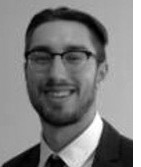 Research and Policy Assistant
at the Alliance for Excellent Education
Research and Policy Assistant
at the Alliance for Excellent Education
Website
Email: hhermann@all4ed.org
Hans Hermann provides content expertise in the work on science of adolescent learning which focuses on translating research for policy and practice regarding improvement low performing secondary schools and underserved student populations.
 Director of Translation in Science of Language and Learning Lab,
Director of Translation in Science of Language and Learning Lab,
Co-founder and Assistant Director for Ph.D. in Educational Neuroscience Program, Gallaudet University
Education and Research Translation Manager for Visual Language and Visual Learning (VL2)
Website
Email: melissa.herzig@gallaudet.edu
Dr. Melissa Herzig is the Education and Research Translation Manager and Director for Translation in the Science of Learning Lab on Visual Language and Visual Learning (VL2). She is also the co-founder and assistant director for the Ph.D. in Educational Neuroscience program at Gallaudet University. She leads assessments and evaluates resources for working with schools, facilitating two-way communication between researchers and educators. Melissa earned her B.A. in Biology at Gallaudet University and her M.A. and Ph.D. degrees in ASL-English Bilingual Education and Teaching and Learning respectively at the University of California, San Diego (UCSD). Afterwards, she worked as a scholar researcher at Salk Institute and San Diego State University. She was a high school teacher for eight years and worked as a supervisor for student teachers and interns at UCSD and National University. Melissa is a part of the newly developed National K-12 ASL Standards Development Team and recently founded a quality assurance review board for American Sign Language products: Signwise for Kids. Her areas of interest are in ASL/English bilingualism, literacy, and reading motivation.
 Senior Program Officer | K-12 EdTech, Bill & Melinda Gates Foundation
Senior Program Officer | K-12 EdTech, Bill & Melinda Gates Foundation
Website
https://www.gatesfoundation.org/
Email: karen.johnson@gatesfoundation.org
Karen Johnson's work centers around three areas of K-12 personalized learning: measuring product efficacy of edtech tools, continually gauging and understanding what teachers need, and spurring development of edtech tools that meet the needs of teachers and students. Previously, Karen spent a decade marketing and building K-12 digital tools in social studies, science, math and language arts. She has spent countless hours conducting usability tests with teachers and working with software developers to implement teachers' feedback.
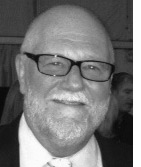 Co-founder and Partner, EDGE Consulting LLC
Co-founder and Partner, EDGE Consulting LLC
Website
Jim Kohlmoos is the co-founder and partner of EDGE Consulting LLC, an education policy consulting boutique and a Senior Fellow at the Carnegie Foundation for the Advancement of Teaching. Kohlmoos’s current portfolio includes work with the philanthropies on policy and research issues as well as initiatives focusing on professional learning, research-practice partnerships, and improvement science.
Kohlmoos has served in a wide range of executive positions in the Washington DC over the past 40 years including executive director of the National Association of State Boards of Education, president and CEO of Knowledge Alliance, vice president of Implementation Group, and the Close Up Foundation.
From 1993 to 2000 Kohlmoos served at the U.S. Department of Education as a Deputy Assistant Secretary and Senior Policy Advisor. He also served on the Presidential Transition Team in 1992.
A graduate of Stanford University, Kohlmoos began his professional career in education 1971 with the U.S. Teacher Corps and subsequently served as a teacher trainer with the US Peace Corps in Malaysia.
 Chair, The Alliance for Excellent Education
Chair, The Alliance for Excellent Education
Co-chair, The Enfranchisement Foundation National Public Education Support Fund
Website
Email: dleeds@npesf.org
Daniel Leeds is founder and president of the National Public Education Support Fund, which organizes the Education Funders Strategy Group, the Partnership for the Future of Learning, and the Education Justice Network. He chairs the Alliance for Excellent Education, which he helped found. In addition to these organizations, his extended family (the Leeds/Jobin-Leeds) launched the Schott Foundation for Public Education and the Institute for Student Achievement. Along with his wife Sunita, Dan co-chairs the Enfranchisement Foundation, which focuses on breaking the cycles of poverty and intolerance in the United States as well as on women’s issues.
 Consultant, National Public Education Support Fund
Consultant, National Public Education Support Fund
Founder - U&I Developments, Partender
Email: sleeds321@gmail.com
Stephan spent the early stages of his career working in business development in the tech world. He has worked with three successful start ups and in venture capital. Through his time in different sectors, education was always a passion and priority. He has seen successful education solutions through work at the OECD, EFSG, Raise.me, and the Special Olympics World Games. Currently, he is working in community rejuvenation in Baltimore.
 Laboratory Researcher and Technician, Cognitive Science Department,
University of California, San Diego
Laboratory Researcher and Technician, Cognitive Science Department,
University of California, San Diego
Email: esleija@ucsd.edu
Estelita Leija is a Cognitive Science Neurologist technician and educator seeking to foster intellectual curiosity in the multifaceted approach to developing novel concepts in technology and learning. She works on a variety of projects including development and research with virtual reality studies in the interdisciplinary STEM branches and Social Studies.
 Professor of Neuroscience, Institute of Biomedical Sciences, Federal University of Rio de Janeiro, Brazil
Professor of Neuroscience, Institute of Biomedical Sciences, Federal University of Rio de Janeiro, Brazil
Professor, D’Or Institute of Research and Education
Head of the Neuroplasticity Lab at the Federal University of Rio de Janeiro
Director General of the Brazilian Network of Science for Education
Website
Email: rlent@icb.ufrj.br
Roberto Lent is Professor of Neuroscience at the Institute of Biomedical Sciences of the Federal University of Rio de Janeiro, and of the D’Or Institute of Research and Education. He has been working at the university for the last 43 years, where he has been department Head and institute Director. He has conducted many studies on neuroplasticity, neurodevelopment and evolution of the nervous system, employing different techniques, from cell biology to neuroimaging. Due to his scientific work, he became a full member of the Brazilian Academy of Sciences.
Besides his scientific publications in specialized journals, Lent dedicates part of his time to the popularization of Neuroscience, with books for adults and for children. For this activity he has been awarded the Prize for Public Understanding and Popularization of Science by the Academy of Sciences of the Developing World (TWAS) in 2007 and the Brazilian National Prize on Popularization of Science in 2010.
More recently, Professor Lent has founded and coordinates the National Network of Science for Education, a non-profit association of scientists of all disciplines dedicated to foster translational research applied to learning and other educational matters.
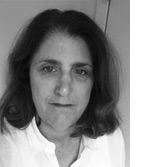 Alliance for Excellent Education
Alliance for Excellent Education
Senior Vice President, Operations
Website
Email: slevine@all4ed.org
Sue Levine has more than thirty years of progressive accounting, finance, IT, human resource, office management, and nonprofit experience.
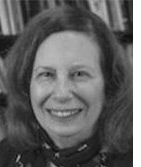 The Rebecca Anne Boylan Professor in Education and Society
The Rebecca Anne Boylan Professor in Education and Society
Co-director of the Center for Early Childhood Research
Chair of the Psychology Department, The University of Chicago
Website
Email: ms-levine@uchicago.edu
Dr. Levine leads the Cognitive Development Lab at the University of Chicago. She studies language and cognitive development in typically developing children and children with pre- or perinatal brain injury. Her lab is particularly interested in how the early experiences of children relate to their developmental trajectories. Much of their research focuses on children’s mathematical and spatial learning, and examines cognitive as well as affective factors relating to achievement in these domains.
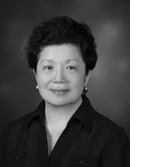 Program Director for Science of Learning Centers, National Science Foundation
Program Director for Science of Learning Centers, National Science Foundation
Website
Email: slim@nsf.gov
Soo-Siang Lim, Ph.D., is a Program Director for the Science of Learning Program in the Social, Behavioral and Economic Science Directorate at the US National Science Foundation (NSF). She also served as the Lead Program Director and Chair of the Coordinating Committee for the Science of Learning Centers (SLC) Program since 2004, when the first SLCs were established to provide intellectual, organizational and physical infrastructure for addressing large-scale, complex problems about learning in humans, other animals and machines. Related to these interests, she was a member of a NSF Task Force for Innovation in Learning and Education, and is a member of the Interagency Task Force for Arts and Human Development spearheaded by the National Endowment for the Arts, and the U.S. department of Health and Human Services.
Prior to her leadership of the SLC Program, Dr. Lim served as the Cluster Leader for the six Neuroscience programs in the Biological Sciences Directorate at the NSF, and as Program Director of the Neuronal and Glial Mechanisms Program. Other previous and present responsibilities include active roles in large-scale, interdisciplinary efforts such as the Engineering Research Centers Program, the Science and Technology Centers Program, Cyberlearning and Future Learning Technologies Program, Integrative Graduate Education and Research Traineeship Program, Nanoscience and Engineering Initiative, the Research Coordination Networks Program, and Smart and Connected Health Program. Prior to joining the NSF, she was an Associate Professor at Indiana University, School of Medicine, where she conducted research in cell biology and neuroscience. She received her Ph.D in Anatomy from the University of North Dakota, followed by post-doctoral training and subsequent scientist appointments at the University of Wisconsin-Madison.
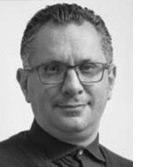 Director/Investigator/Professor, Unidad de Neurobiología/CONICET/UNSAM (Unit of Applied Neurobiology)
Director/Investigator/Professor, Unidad de Neurobiología/CONICET/UNSAM (Unit of Applied Neurobiology)
Website (Photo courtesy of José Luis Tesoro)
Email: lipina@gmail.com
Sebastián J. Lipina (Buenos Aires, Argentina, 1968). Ph.D. in Psychology. Diploma in Social Sciences (Latin American School of Social Sciences, FLACSO). Researcher of the National Council of Scientific and Technical Research (CONICET, Argentina). Director of the Unit of Applied Neurobiology (UNA, CEMIC-CONICET) Full Professor of the Seminar Childhood Poverty and Cognitive Development (National University of San Martin, UNSAM, Argentina). Fellow of the Center for Neuroscience and Society (CNS, University of Pennsylvania, USA). Co-director of the Mind, Brain, and Education School (Ettore Majorana Foundation and Centre for Scientific Culture, Italy). Member of the IRB of CEMIC. Volunteer Researcher of the On-call Scientists Program (American Association for the Advancement of Science, USA). Associate Editor of Frontiers in Psychology. Consultant of the Panamerican Health Organization, UNICEF, UNDP and several Ministries of Health, Education and Social Development in different Latin American countries. The current research projects under his direction focus on (a) the analysis of poverty influences on self-regulation development, (b) the design of interventions aimed at optimizing children´s cognitive performance through exercising and training in laboratory, school and community settings, and (c) the transfer of evidence-based interventions to policy.
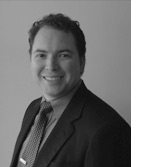 Vice President, Policy Development and Government Relations, Alliance for Excellent Education
Vice President, Policy Development and Government Relations, Alliance for Excellent Education
Website
Email: plovell@all4ed.org
Phillip Lovell serves as All4Ed’s vice president of policy development and government relations. He is a passionate advocate for the nation’s underserved children and youth, having spent the past two decades advocating on Capitol Hill in areas such as juvenile justice, homelessness, and education.
Mr. Lovell joined All4Ed in early 2010 and is responsible for leading the organization’s efforts on Capitol Hill, with the White House, and U.S. Department of Education to advocate for federal policy that will prepare the nation’s students to graduate from high school prepared for college and the workforce. He also leads All4Ed’s effort at the state level to ensure that high schools with low graduation rates receive comprehensive support and intervention under the recently passed Every Student Succeeds Act. He also led All4Ed’s effort to increase federal funding for internet access among the nation’s schools and libraries by $1.5 billion annually. Mr. Lovell serves as a frequent spokesperson for the organization and leads Federal Flash, All4Ed’s video series that provides education stakeholders nationwide with regular updates on federal and state education policy.
 Managing Director for State and Local Partnerships, Emerson Collective
Managing Director for State and Local Partnerships, Emerson Collective
Website
Email: carmel.martin@emersoncollective.com
Carmel Martin is a distinguished senior fellow at American Progress, focusing on economic policy and education and workforce issues. Through her years in Congress, she worked on legislation related to education, workforce, budget, welfare, health care, and other issues of national importance. Martin has appeared on PBS, NBC, CNN, and Fox. She has been published in and cited in publications including The New York Times and The Washington Post. She was named one of the five women who shape education policy by the National Journal in 2014 and has testified as an expert witness in front of legislative committees, including the House Budget Committee.
 Chief Executive Officer and Co-Founder, EKStep
Chief Executive Officer and Co-Founder, EKStep
Website
Email: shankar@ekstep.org
Shankar Maruwada is the CEO and Co-founder of EkStep Foundation based in India and building an open digital infrastructure for learning, EkStep's mission is to amplify learning opportunities for 200m children in India by 2020 particularly in literacy and numeracy.
Shankar is an entrepreneur and marketing professional with a wide range of experience working on large scale projects such as the AADHAAR, India’s national identification program, where he was the Head of Demand Generation and Marketing. Shankar pioneered data analytics in India through, Marketics, a company he co-founded. He is an investor in startups and a mentor to entrepreneurs.
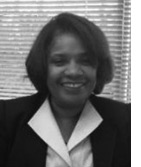 Vice President, Philanthropic Partnerships, Alliance for Excellent Education
Vice President, Philanthropic Partnerships, Alliance for Excellent Education
Website
Email: lmcnair@all4ed.org
Lynn McNair joined All4Ed in December 2016 as vice president of philanthropic partnerships. She brings nearly thirty years of progressive philanthropy and fund development experience securing resources for small and large nonprofit organizations with national and/or international missions and agendas. Ms. McNair has extensive knowledge and experience working with foundations, corporations, government agencies, and individuals.
Most recently, Ms. McNair was senior director of philanthropy and partnership development at the Internet Society, an international organization trusted as the world’s independent source of leadership for internet policy, technology standards, and future development. She also worked for the Salzburg Global Seminar as vice president of philanthropic partnerships. Prior to joining the Seminar, Ms. McNair worked for the American Association of University Women (AAUW), an organization that promotes equity in education for women and girls and provides legal advocacy in cases of sex discrimination in higher education. At the AAUW, she served as acting director of the Association’s Educational Foundation, which provides funding for research on women and girls in education and for graduate women worldwide, as well as director of development, where she oversaw all aspects of AAUW’s fundraising, working with senior staff, consultants, volunteers, and the three boards to implement plans for annual, program, corporate, foundation, individual and government funding.
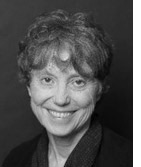 Laura H. Carnell Professor of Psychology,
Laura H. Carnell Professor of Psychology,
James H. Glackin Distinguished Faculty Fellow, Director Spatial Intelligence and Learning Center
Temple University
Website
Email: mnewcombe@temple.edu
Professor Nora Newcombe is the Laura H. Carnell Professor of Psychology at Temple University and Principal Investigator of the Spatial Intelligence and Learning Center (SILC), headquartered at Temple University and involving Northwestern University, the University of Chicago and the University of Pennsylvania as primary partners. Professor Newcombe completed her degree majoring in psychology at Antioch College and received her Ph.D.at Harvard University in Psychology and Social Relations. Professor Newcombe has served as Editor of the Journal of Experimental Psychology: General and as Associate Editor of Psychological Bulletin, as well as on numerous editorial boards and grant review panels. She is currently an Associate Editor for Cognitive Psychology and Cognitive Research: Principles and Implications. Her Academic Honors include the Distinguished Scientific Contributions Award from the Society for Research in Child Development, the William James Fellow Award from APS, the George Miller Award and the G. Stanley Hall Awards from APA, the Award for Distinguished Service to Psychological Science, also from APA, and the Women in Cognitive Science Mentor Award. She is a fellow of four divisions of the American Psychological Association (General, Experimental, Developmental, and Psychology of Women), of the American Psychological Society, and of the American Association for the Advancement of Science, and has been a Visiting Professor at the University of Pennsylvania, Princeton, and the Wissenschaftskolleg in Berlin. She is a member of the American Academy of Arts and Sciences and the Society of Experimental Psychologists. Professor Newcombe has authored over 200 papers and book chapters.
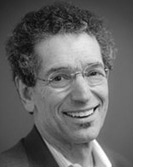 American Institutes for Research
American Institutes for Research
Vice President and Institute Fellow
Website
Email: dosher@air.org
David Osher is Vice President and Institute Fellow at the American Institutes for Research. Osher’s expertise includes social and emotional learning, school climate and conditions for learning, school discipline and safety, school and community mental health services and interventions, culturally responsive approaches, collaboration, implementation science, measurement, and the science of learning and development. He has led many impact, implementation and descriptive studies as well as systematic reviews in these areas, both in the U.S. and globally. His work includes conducting a systematic research process to identify where multiple sciences and disciplines converge regarding a science of learning and development. Osher’s recent publications regarding the Science of Learning and Development include Drivers of Human Development: How Relationships and Context Shape Learning and Development; Malleability, Plasticity, and Individuality: How Children Learn and Develop in Context; and the forthcoming Creating Safe, Equitable, Engaging Schools: A Comprehensive, Evidence-Based Approach to Supporting Students. Osher received his A.B., A.M., and Ph.D. from Columbia University, and has served as Dean of two professional schools of human services and of a liberal arts college.
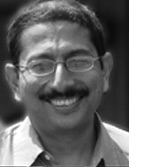 President and Chief Learning Officer, Educational Initiatives
President and Chief Learning Officer, Educational Initiatives
Website
Email: sridhar@ei-india.com
Sridhar Rajagopalan is an educational entrepreneur who started Educational Initiatives Pvt Ltd (EI) in India in 2001. Earlier, he co-founded and ran Eklavya School Ahmedabad which has been rated as the top school in Western India by Education World magazine since 2016. EI researches and creates diagnostic assessments and offers ASSET, India’s largest diagnostic assessment. Mindspark, EI’s adaptive learning program, is used by about 100,000 students in India and the Middle East. It was the topic of a Harvard Business School case and featured in an Economist cover story in 2017. EI’s Student Learning Study (supported by Google, Inc.) provides one of the most detailed pictures available of student learning levels in Indian government schools. Sridhar has been a proponent of a new Science of Learning – a body of knowledge and research on how students learn – and believes that such a body of knowledge is needed to achieve significant improvements in student learning levels.
Sridhar is a member of various central and state government committees in India related to assessment and learning. He is a board member of Central Square Foundation and trustee of Pratham, Gujarat. He is currently based in the USA and runs EI’s US subsidiary there.
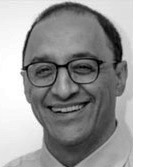 Institute Director, Queensland Brain Institute,
University of Queensland
Institute Director, Queensland Brain Institute,
University of Queensland
Website
Email: pankaj.sah@uq.edu.au
Pankaj Sah is Director of the Queensland Brain Institute at The University of Queensland (UQ). He is renowned for his work in understanding the neural circuitry of the amygdala, an area of the brain that plays a central role in learning and memory formation. His laboratory uses a combination of molecular tools, electrophysiology, anatomical reconstruction, calcium imaging and behavioral studies to examine the electrophysiological signatures of different brain regions and their impact on disease. Recently, his laboratory has been working with patients undergoing electrode implantation for deep brain stimulation, which is used to treat a variety of disorders such as Parkinson's disease, Tourette's syndrome and essential tremor. Professor Sah trained in medicine at The University of New South Wales and, after completing his internship, gained a Ph.D. from the Australian National University. He was recruited to QBI as a founding member in 2003, and has been Director since July 2015. Professor Sah has published over 110 papers in international peer-reviewed journals. He is also the Editor-in-Chief of the Nature Partner Journal npj Science of Learning, the first journal to bring together the findings of neuroscientists, psychologists, and education researchers to understand how the brain learns.
 Division Director, Education Division, National Governors Association
Division Director, Education Division, National Governors Association
Website
Email: asamuel@nga.org
Aaliyah A. Samuel is Director of the Education Division at NGA’s Center for Best Practices, where she works on early childhood and K12 policies. Before joining NGA, Dr. Samuel was the Senior Director of Family Support and Literacy with First Things First in Arizona, where she coauthored Arizona’s Family Support framework which helped to address the gaps in the early childhood system and assisted with connecting programs and resources for children and their families across the state. Dr. Samuel’s early career in education began as an elementary special education and general education instructor, moving upward to assistant principal and principal. Dr. Samuel holds a bachelor’s degree from Tuskegee University, master’s degree from the University of South Florida, and doctoral degree from Nova Southeastern University.
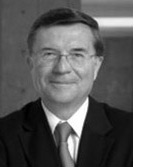 Professor and Laboratory Head, Computational Neurobiology Laboratory
Professor and Laboratory Head, Computational Neurobiology Laboratory
Francis Crick Chair at the Salk Institute for Biological Studies
Professor, Department of Biology, UC San Diego
Co-Director, Temporal Dynamics of Learning Center (NSF Science of Learning Center)
Website
Email: sejnowski@salk.edu
Terrence Sejnowski is a pioneer in computational neuroscience. His laboratory uses both experimental and modeling techniques to study the biophysical properties of synapses and neurons and the population dynamics of large networks of neurons. He has published over 500 scientific papers and 12 books, including The Computational Brain, with Patricia Churchland; He is a member of National Academy of Sciences, the National Academy of Engineering, the National Academy of Medicine and the National Academy of Inventors. Dr. Sejnowski received his Ph.D. in physics from Princeton University and was a postdoctoral fellow in the Department of Neurobiology at Harvard Medical School and on the faculty at the Johns Hopkins University. He holds the Francis Crick Chair at The Salk Institute for Biological Studies and is also a Professor of Biology at the University of California, San Diego, where he is co-director of the Institute for Neural Computation and co-director of the NSF Temporal Dynamics of Learning Center. Sejnowski is the President of the Neural Information Processing Systems (NIPS) Foundation, which organizes an annual conference attended by over 2000 researchers in machine learning and neural computation and is the founding editor-in-chief of Neural Computation published by the MIT Press.; He was elected to the American Academy of Arts and Sciences and is also a Fellow of the American Association for the Advancement of Science, a Fellow of the Institute of Electrical and Electronics Engineers and a Fellow of the Cognitive Science Society. He has received many honors. Dr. Sejnowski was instrumental in shaping the BRAIN Initiative that was announced by the White House on April 2, 2013, and served on the Advisory Committee to the Director of NIH for the BRAIN Initiative.
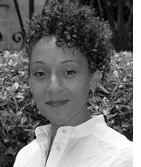 Associate Professor of Psychology, Virginia Commonwealth University Minority Fellow, American Psychological Association
Associate Professor of Psychology, Virginia Commonwealth University Minority Fellow, American Psychological Association
Congressional Fellow, American Educational Research Association
Website
Email: znserpell@vcu.edu
Dr. Zewelanji Serpell is an Associate Professor of Psychology at Virginia Commonwealth University, and a 2017-2018 American Educational Research Association/AAAS Science & Technology Policy congressional fellow. She studies sociocultural factors that influence African American students’ cognitive development and classroom learning. Her current research harnesses advances in cognitive science to develop and test school-based programs that support Executive functioning.
Her research focuses on understanding and optimizing the learning experiences of African American students in school. Her work considers school a context for cognitive development and, examines sociocultural processes that promote or inhibit learning. She is specifically interested in harnessing advances in cognitive science to develop and test school-based programs that support executive functioning. With funding from the Department of Education, Dr. Serpell is exploring whether cognitive activities associated with playing chess improve executive functions, and whether these improvements boost academic performance in elementary school. Supported by the National Science Foundation, she also studies the efficacy of computer-based cognitive training, and adaptations to these programs to consider the social, affective, and motivational aspects of student learning. In addition, she has an overarching interest in school mental health, particularly for students with disruptive behavior problems. She has co-edited two seminal books on school mental health: Advances in School-Based Mental Health Interventions (2010) and, the Handbook of Culturally Responsive School Mental Health: Advancing Research, Training, Practice, and Policy (2013).
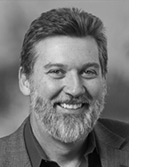 Executive Director, Learning Policy Institute
Executive Director, Learning Policy Institute
Website
Email: pshields@learningpolicyinstitute.org
Shields brings to LPI more than 25 years of experience managing large-scale social science research projects. Prior to joining LPI, he was the Executive Director of SRI Education, where he also served as Research Director for Teaching and California’s Future, a 15-year initiative to track the quality of the teacher workforce that contributed to legislation to ensure high-quality teaching for all of California’s students. Shields has also overseen many NSF- and foundation-supported studies of STEM opportunities for disadvantaged children, including serving as the co-principal investigator of the Science Activation Lab, a national research and design effort to dramatically strengthen learning.
Shields received a Ph.D. and an M.A. in Educational Policy from Stanford University, an M.A. in Educational Administration from Columbia University, and a B.A. in Romance Languages from Amherst College. He recently served on the National Academy of Sciences Committee on Strengthening Science Education through a Teacher Learning Continuum.
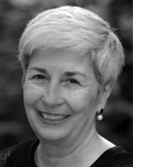 Executive Director, National Public Education Support Fund
Executive Director, National Public Education Support Fund
Website
Email: tshuck@npesf.org
Terri Shuck is the executive director of the National Public Education Support Fund, a national hub for convening and connecting influential leaders in education philanthropy, advocacy, research, policy, and practice. Working with board chair Dan Leeds, she helped launch the Education Funder Strategy Group, a learning community of leading foundations focused on systemically improving public education as the wellspring for a healthy democracy and vibrant communities. She has over 30 years of experience in organizational development for non-profit and public interest organizations, including senior leadership roles with the Institute for America’s Future, League of Conservation Voters (LCV) and the LCV Education Fund, People For the American Way, and the Government Accountability Project. In her early career, Terri worked with the Institute of Politics at the Harvard Kennedy School of Government, the ACTION Agency/VISTA volunteer program, and The Youth Project, all of which encouraged the civic participation of young people in public interest advocacy and community organizing.
 Head of Research and Member of the Senior Management, Jacobs Foundation, Zurich, Switzerland
Head of Research and Member of the Senior Management, Jacobs Foundation, Zurich, Switzerland
Website
Email: simon.sommer@jacobsfoundation.org
Simon Sommer, M.A., is the Head of Research and a Member of the Senior Management at the Jacobs Foundation in Zurich, Switzerland. In his current position, he is responsible for research project funding, the Jacobs Foundation Research Fellowship Program, intervention research, the annual Jacobs Foundation Conferences, and workshops and symposia at Marbach Castle. He developed and initiated the Klaus-J-Jacobs Research Prize as the largest and most renowned award honoring research on child and youth development.
Before joining the Jacobs Foundation in 2006, he worked at the Volkswagen Foundation in Hannover, Germany’s largest private research funder, and as a management consultant with McKinsey & Company in Berlin, Germany. He holds graduate degrees in Cultural Studies and Musicology from the Leuphana Universität Lüneburg, Germany, and the University of Maryland, College Park, USA.
 Senior Project Lead, EducationCounsel LLC
Senior Project Lead, EducationCounsel LLC
Website
Email: joaquin.tamayo@educationcounsel.com
Joaquin Tamayo is a policy advisor with EducationCounsel in Nelson Mullins Riley & Scarborough's Washington, DC office. Mr. Tamayo has 20 years of experience in the field of education and education policy. From his position as social studies teacher and director of student activities at Huntington Park High School in Huntington Park, CA, to the federal government, and then to his position as co-founder and national program director of the Middle School Kindness Challenge at Stand for Children, Mr. Tamayo has led in the development and implementation of a variety of education policies, programs, and organizations.
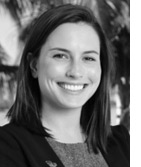 Policy Analyst, Education Division, National Governors Association
Policy Analyst, Education Division, National Governors Association
Website
Email: STankersley@nga.org
Samantha Tankersley serves as policy analyst in the National Governors Association Center for Best Practices Education Division. Samantha’s work focuses on school choice, human capital, gubernatorial transitions, work-based learning and global education.
Prior to joining NGA in 2017, Samantha served as Senior Policy Analyst at the Foundation for Excellence in Education (ExcelinEd). At ExcelinEd, Samantha conducted state and federal policy analyses and provided state policymakers and leaders with information concerning best practices and trends in state policy making. Samantha also assisted in the creation and launch of ExcelinEd’s EdPolicy Leaders Online initiative. Samantha holds a bachelor’s in Social Science Education from the University of Central Florida and a master’s in Public Administration from Florida State University. Samantha originally hails from Florida.
 Program Director, New Designs to Advance Learning, Carnegie Corporation of New York
Program Director, New Designs to Advance Learning, Carnegie Corporation of New York
Website
Email: slt@carnegie.org
Saskia Levy Thompson is a program director within the Carnegie Corporation of New York’s Education program, where she manages the New Designs to Advance Learning portfolio. Saskia oversees grantmaking aimed at advancing school and system models that enable students to develop the knowledge, skills, and dispositions needed for future success.
For the last fifteen years, Saskia has worked at the intersection of practice, policy, and research. She has served as a member of the leadership team at the NYC Department of Education, including an appointment as Deputy Chancellor for Portfolio Planning; as Executive Director of the Urban Assembly, a nonprofit network of high schools serving high-poverty communities; and as a senior staff member at both the Research Alliance for NYC Schools and MDRC, the preeminent national think tank focused on building knowledge to improve social policy.
Saskia holds a BA in Political Science from NYU, and worked abroad in Buenos Aires, Argentina prior to beginning her career in education. She sits on the boards of several youth services organizations, including the Harold Hunter Foundation, East Harlem Scholars Academies, the East Harlem Tutorial Project, and the Teagle Foundation, and also volunteers in her community.
 Vice President, D'Or Institute for Research and Education; Professor, Federal University of Rio de Janeiro
Vice President, D'Or Institute for Research and Education; Professor, Federal University of Rio de Janeiro
Website
Email: fernanda.tovarmoll@idor.org
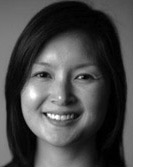 Manager, Learning Research, Chan Zuckerberg Initiative (CZI)
Manager, Learning Research, Chan Zuckerberg Initiative (CZI)
Website
Email: jtsang@chanzuckerberg.com
As a manager, learning research at CZI, Jessica Tsang supports efforts to close the gap between educational practice and the research on how people learn. Prior to CZI, Jessica was a researcher at the Stanford Graduate School of Education, where she studied elementary mathematics cognition and learning in classroom, laboratory, and neuroimaging settings. Jessica has a Ph.D. in Educational Psychology from Stanford University and is a co-author of the book The ABCs of How We Learn: 26 Scientifically Proven Approaches, How They Work, and When to Use Them.
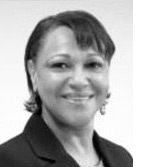 Vice President of Policy to Practice, Alliance for Excellent Education
Vice President of Policy to Practice, Alliance for Excellent Education
Website
Email: wwaite@all4ed.org
Winsome Waite, Ph.D., joined All4Ed in July 2016 as senior director of policy and advocacy for policy to practice, and deeper learning. In her current role as vice president of practice, she leads practitioner support activities to bridge federal policy to practice at the state, district, and school levels.
Previously, Dr. Waite was principal analyst and consultant at American Institutes for Research where she led various federally funded tasks on centers such as Regional Education Labs, Regional Comprehensive Centers, and National Content Centers. Dr. Waite has managed several state- and district-funded projects and tasks in school improvement, state systemic plan development, educator evaluation, and leadership development. She has partnered with state superintendents and commissioners, district superintendents and local school boards, and principals to design strategic plans and approaches, and has provided a wide range of technical assistance supports to ensure effective and sustained implementation efforts.
Dr. Waite has served in many instructional leadership roles in district-level K–12 education, mainly in the Maryland Public School System. She has had extensive leadership responsibilities for district and school improvement and teacher and leader development. Much of her work at the school district level has been around strategic planning, curriculum and instruction, leadership development, school improvement, assessment and data literacy, professional development, and implementation of innovations. Dr. Waite has also taught graduate school courses in curriculum leadership and content-area reading.
Dr. Waite earned bachelor of arts degrees in elementary and early childhood education and a master’s degree in education in K–12 curriculum and instruction from the University of Maryland. She also holds a doctorate of philosophy degree in education leadership from Notre Dame of Maryland University.
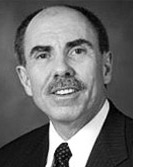 President, Alliance for Excellent Education
President, Alliance for Excellent Education
Website
Email: wise@all4ed.org
Former West Virginia Gov. Bob Wise is president of the Alliance for Excellent Education (All4Ed), a nonprofit organization that is a national leader for transforming the nation’s high schools so that all students graduate from high school with the content knowledge and critical thinking, collaboration, and communication skills necessary to succeed in college and a career. Led by Gov. Wise since 2005, All4Ed combines policy, practice, and partnerships to transform learning for all students, particularly those with the least opportunity who face the greatest challenges.
Following twenty-four years serving as governor, member of the U.S. House of Representatives, and state legislator, Gov. Wise has become a sought-after speaker and advisor on education issues, working closely with the U.S. Department of Education, White House, and key state and federal policymakers. A prominent voice promoting the effective use of technology to improve education for all students, Gov. Wise led All4Ed in pioneering the first-ever Digital Learning Day in 2012. Digital Learning Day is a national awareness campaign promoting digital learning and spotlighting successful instructional technology practice in K–12 public school classrooms across the country.
Gov. Wise also led All4Ed’s “Project 24,” a ground-breaking initiative to help school districts plan and effectively use technology and digital learning. From Project 24 grew Future Ready Schools, a free, bold new effort to maximize digital learning opportunities and help school districts move quickly toward preparing students for success in college, a career, and citizenship. A joint effort of All4Ed and the U.S. Department of Education, with the support of the Leading Education by Advancing Digital (LEAD) Commission and a vast coalition of organizations, Future Ready Schools is serving more than 1,900 school districts, representing more than 15 million students. Read more about Gov. Wise's vast experience here.
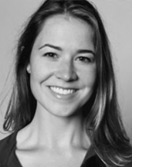 Director of Learning, Research, and Practice, XQ Institute
Director of Learning, Research, and Practice, XQ Institute